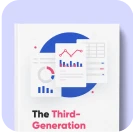7 Essential Data Ethics Examples for Businesses in 2025
Share this article
Data ethics examples provide valuable insights into responsible data management. They showcase how organizations balance individual rights with societal benefits.
See How Atlan Simplifies Data Governance – Start Product Tour
For instance, Apple’s commitment to privacy and IBM’s AI ethics demonstrate best practices in the industry. These examples are essential for businesses looking to enhance their data governance frameworks.
Data ethics is the branch of ethics that addresses the generation, collection, sharing, and use of data. It considers how data practices respect values like privacy, fairness, and transparency, as well as the balance between individual rights and societal benefits.
Data ethics is concerned with moral obligations and issues related to personally identifiable information (PII) and its potential impacts on individuals and society at large.
Save Your Seat To See Atlan in Action - Live Demo Series
Data ethics challenges us to ask questions like, “Is this the right thing to do?” and “Can we do better?”
In this article, we will learn what is data ethics and what are the best examples of data ethics you need to be aware of. Let’s dive in!
Table of contents #
- Real-world examples of data ethics
- Reasons why data ethics matter
- Principles of data ethics
- 3 Noteworthy examples of unethical data practices
- How organizations making the most out of their data using Atlan
- FAQs about Data Ethics Examples
- Data ethics: Related reads
7 Real-world examples of data ethics in practice #
Data ethics can be challenging to grasp in theory, but real-world examples can offer valuable insights. So, here are seven significant instances where data ethics played a pivotal role:
- Apple’s commitment to privacy
- IBM’s AI ethics
- Microsoft’s data governance
- GDPR and data protection
- Facebook and Cambridge Analytica scandal
- Project Nightingale and Google
- Toronto’s Sidewalk Labs
Let’s understand each one of them in detail.
1. Apple’s Commitment to Privacy #
Apple has long positioned itself as a privacy-focused company. Its privacy policy underlines the principles of data minimization, on-device processing, user transparency and control. These principles demonstrate how a global tech giant implements data ethics.
Besides, it consistently emphasizes its dedication to user privacy. The company minimizes personal data collection, processes much of the data on the user’s device instead of in the cloud, provides transparency reports, and gives the user significant control over their data. These practices have led to Apple being lauded as a model for privacy, a cornerstone of data ethics.
2. IBM’s AI Ethics #
IBM’s commitment to AI ethics is visible in their principles of transparency and explainability in AI, which states that AI systems should be transparent, and the decision-making process of AI should be explainable.
They also stress the importance of removing bias from AI systems to ensure fairness and impartiality. The company’s AI Ethics Policy reflects its commitment to data ethics.
3. Microsoft’s Data Governance #
Microsoft demonstrates its ethical approach to data management through rigorous data governance. Microsoft’s privacy policy includes principles like accountability, transparency, and user control, showcasing an ethical approach to data management.
The company takes responsibility for personal data protection, provides transparent privacy policies, and gives users control over their data, allowing them to view, edit, download, and delete their information.
4. GDPR and Data Protection #
The European Union’s General Data Protection Regulation (GDPR) by the EU ensures strong data protection rights for individuals. This law itself is an example of data ethics in practice.
GDPR embodies data ethics by granting individuals the right to know what data is collected about them, why it is collected, and where it is stored. It requires organizations to protect personal data and to notify authorities of data breaches within 72 hours.
Caveat: Now, let’s dive into the after effects of what happens when data ethics aren’t followed properly.
5. Facebook and Cambridge Analytica Scandal #
On the flip side, the Facebook and Cambridge Analytica scandal showed what happens when data ethics are not followed. The misuse of data impacted millions and led to widespread backlash and regulatory scrutiny. Wait, when did it happen?
In 2018, the revelation that Cambridge Analytica had harvested the personal data of millions of Facebook users without their consent resulted in significant fallout. The scandal highlighted the devastating consequences of unethical data practices and led to calls for stricter data regulations worldwide.
6. Project Nightingale and Google #
Criticism surrounded Google’s Project Nightingale due to its acquisition of healthcare data from millions of Americans without obtaining their consent, drawing attention to the critical aspect of informed consent in data ethics.
The project faced significant backlash as it became public knowledge that Google was gathering healthcare data from a vast number of individuals without their knowledge or explicit approval. This incident prompted widespread discussions on the ethical considerations of data collection and processing within the healthcare industry, underscoring the essential requirement for transparent and unequivocal consent in all data practices.
7. Toronto’s Sidewalk Labs #
Alphabet’s Sidewalk Labs had ambitious plans to create a data-driven “smart city” in Toronto. However, the project faced significant opposition due to worries about data privacy and the possibility of surveillance.
As a result, the project was eventually scrapped, serving as a poignant reminder of the necessity to strike a delicate balance between technological advancement and ethical handling of data. This incident highlighted the growing importance of considering ethical considerations alongside innovation in such ventures.
Nugget: These examples underline the importance of data ethics in diverse scenarios and the impact they can have on individuals and society. Each case teaches us about ethics—what to do or avoid doing. It shows how important data ethics are in our data-focused world.
The successful implementation of data ethics principles can build trust and promote fairness, while negligence can lead to significant consequences.
5 Reasons why data ethics matter in 2025 #
To understand why data ethics is important, we need to reflect on the critical role data plays in today’s society. Data is not just information; it is power. It can shape behaviors, influence decisions, and even define the course of our lives. Now, let’s dive into the five reasons why data ethics is so significant.
- Protection of personal privacy
- Transparency and trust
- Equitable decision-making
- Regulatory compliance
- Social responsibility
Let’s look at each one of them in detail.
1. Protection of personal privacy #
With the vast amounts of data being collected every second, individuals’ privacy is at risk. Data ethics provides a guideline for maintaining the integrity and confidentiality of this data, ensuring that personal information is not misused.
2. Transparency and trust #
Companies and institutions that adhere to good data ethics are more transparent about their data practices. This openness builds trust with customers, employees, and stakeholders, which is essential for long-term success.
3. Equitable decision making #
When data is used to drive decisions - be it in healthcare, finance, or law enforcement - ethical considerations ensure that the algorithms and models don’t perpetuate discrimination or bias.
4. Regulatory compliance #
Understanding and adhering to data ethics can help organizations navigate the complex landscape of data regulations. Non-compliance can lead to severe legal and financial repercussions.
5. Social responsibility #
In the era of big data, organizations have a social responsibility to handle data ethically. They must balance their pursuit of innovation and profit with respect for individuals’ rights and societal well-being.
In short, data ethics is the moral compass guiding us through the digital age. By following its principles, we can ensure that the vast amounts of data generated every day are used responsibly, equitably, and for the greater good.
What are the principles of data ethics? #
As businesses become increasingly data-driven, they must be mindful of the ethical implications of their data practices. Here are six fundamental principles of data ethics that are crucial for modern businesses:
- Transparency
- Consent and control
- Privacy and security
- Fairness and non-discrimination
- Data minimization
- Accountability
Let us look into each of the above principles of data ethics in brief:
1. Transparency #
Transparency is about being open and clear about the data collection and processing practices. Businesses should inform customers about what data they are collecting, how they are using it, and with whom it might be shared.
2. Consent and control #
Businesses must ensure they obtain explicit consent from individuals before collecting or processing their data. Moreover, individuals should have control over their own data, including the ability to access, modify, or delete it.
3. Privacy and security #
Safeguarding personal data is a critical ethical responsibility. Businesses must use secure methods to protect data from unauthorized access, breaches, or leaks, and respect the privacy of the individuals whose data they handle.
4. Fairness and non-discrimination #
The use of data and AI should not perpetuate discrimination or bias. Businesses should work to ensure that their algorithms and data practices are fair and equitable to all, and don’t inadvertently reinforce existing societal inequalities.
5. Data minimization #
Businesses should follow the principle of data minimization, which means gathering only the essential information required for a particular purpose. Excessive data collection can lead to increased risks of data breaches and privacy violations.
6. Accountability #
Businesses must be accountable for their data practices. If something goes wrong, such as a data breach or an AI system making a discriminatory decision, businesses must take responsibility and rectify the issue.
Incorporating these principles into their data practices can help businesses navigate the complex landscape of data ethics. By doing so, they can not only ensure regulatory compliance but also build trust with customers and stakeholders, creating a sustainable and ethical data culture.
Cautionary tales: 3 Noteworthy examples of unethical data practices #
The understanding of what constitutes data ethics can often be best illustrated by looking at the instances where these principles were breached. So, let’s examine three major examples of unethical data practices.
- Equifax data breach
- Yahoo data breach
- Uber data breach cover-up
Let’s dive deeper into each one of them.
1. Equifax data breach #
In 2017, Equifax, one of the largest credit bureaus in the U.S., suffered a massive data breach that compromised the personal information (including Social Security numbers and driver’s license numbers) of approximately 147 million people.
Equifax was heavily criticized for its inadequate security measures and slow response to the breach. The incident raised serious questions about the ethics of data security and the responsibilities of companies to protect user data.
2. Yahoo data breach #
Yahoo suffered multiple data breaches between 2013 and 2014, affecting all of its 3 billion user accounts. The stolen user information included names, email addresses, dates of birth, security questions and answers, and hashed passwords.
The incident was made worse by Yahoo’s delayed disclosure, as the company did not publicly acknowledge the breach until 2016.
3. Uber data breach cover-up #
In 2016, Uber suffered a data breach that exposed the personal data of 57 million users and drivers. Rather than reporting the breach, Uber paid the hackers $100,000 to delete the data and keep the breach quiet.
This cover-up was a clear violation of data ethics, particularly transparency and accountability, and resulted in several lawsuits and damage to Uber’s reputation.
These examples highlight the disastrous consequences of neglecting data ethics. Not only do such breaches violate personal privacy and trust, but they can also lead to significant financial and reputational damage for the companies involved. These cases underline the critical importance of adhering to ethical principles in data handling and usage.
Recap: What have we learnt? #
Data ethics is critical in the digital era, encompassing the moral aspects of data generation, collection, and utilization. High-profile instances such as Apple’s privacy commitment and IBM’s AI ethics policy exemplify positive data ethics practices, ensuring privacy, transparency, and equitable decision-making.
Conversely, the Facebook-Cambridge Analytica scandal, Equifax’s data breach, and Google’s Project Nightingale underscore the dire consequences of neglecting ethical considerations, resulting in privacy violations, legal issues, and erosion of trust.
These examples collectively underline the pivotal role of data ethics in maintaining individual privacy, ensuring regulatory compliance, and upholding social responsibility in our increasingly data-centric world.
How organizations making the most out of their data using Atlan #
The recently published Forrester Wave report compared all the major enterprise data catalogs and positioned Atlan as the market leader ahead of all others. The comparison was based on 24 different aspects of cataloging, broadly across the following three criteria:
- Automatic cataloging of the entire technology, data, and AI ecosystem
- Enabling the data ecosystem AI and automation first
- Prioritizing data democratization and self-service
These criteria made Atlan the ideal choice for a major audio content platform, where the data ecosystem was centered around Snowflake. The platform sought a “one-stop shop for governance and discovery,” and Atlan played a crucial role in ensuring their data was “understandable, reliable, high-quality, and discoverable.”
For another organization, Aliaxis, which also uses Snowflake as their core data platform, Atlan served as “a bridge” between various tools and technologies across the data ecosystem. With its organization-wide business glossary, Atlan became the go-to platform for finding, accessing, and using data. It also significantly reduced the time spent by data engineers and analysts on pipeline debugging and troubleshooting.
A key goal of Atlan is to help organizations maximize the use of their data for AI use cases. As generative AI capabilities have advanced in recent years, organizations can now do more with both structured and unstructured data—provided it is discoverable and trustworthy, or in other words, AI-ready.
Tide’s Story of GDPR Compliance: Embedding Privacy into Automated Processes #
- Tide, a UK-based digital bank with nearly 500,000 small business customers, sought to improve their compliance with GDPR’s Right to Erasure, commonly known as the “Right to be forgotten”.
- After adopting Atlan as their metadata platform, Tide’s data and legal teams collaborated to define personally identifiable information in order to propagate those definitions and tags across their data estate.
- Tide used Atlan Playbooks (rule-based bulk automations) to automatically identify, tag, and secure personal data, turning a 50-day manual process into mere hours of work.
Book your personalized demo today to find out how Atlan can help your organization in establishing and scaling data governance programs.
FAQs about Data Ethics Examples #
1. What is a data ethics example? #
Data ethics examples refer to real-world instances where organizations implement ethical practices in data management. These examples highlight how companies prioritize privacy, fairness, and transparency in their data handling processes.
2. What are the three basic data ethics? #
The three basic data ethics principles include transparency, consent, and accountability. These principles guide organizations in ensuring ethical data practices that respect user rights and promote trust.
3. What is an example of a data ethics violation? #
An example of a data ethics violation is the Cambridge Analytica scandal, where Facebook users’ data was harvested without consent for political advertising. This incident raised significant concerns about privacy and ethical data use.
4. What are the 5 C’s of ethics in data science? #
The 5 C’s of ethics in data science are Consent, Confidentiality, Control, Compliance, and Communication. These principles help guide ethical practices in data collection, usage, and sharing.
5. How do data ethics examples apply to businesses? #
Data ethics examples apply to businesses by providing frameworks for responsible data management. They guide organizations in implementing ethical practices that enhance user trust and comply with regulations.
6. How can I ensure compliance with data ethics regulations? #
To ensure compliance with data ethics regulations, organizations should establish clear data governance policies, conduct regular audits, and provide training on ethical data practices to employees.
Data ethics: Related reads #
- What is Data Literacy and Why is It Important?
- Data Ethics Unveiled: Principles & Frameworks Explored
- What Is a Data Catalog? & Why Do You Need One in 2025?
- Data Catalog 101 Guide
- Data Governance in Action: Community-Centered and Personalized
- Data Governance Tools: Importance, Key Capabilities, Trends, and Deployment Options
- Data Governance Tools Comparison: How to Select the Best
- Data Governance Tools Cost: What’s The Actual Price?
- Data Governance Process: Why Your Business Can’t Succeed Without It
- Data Governance and Compliance: Act of Checks & Balances
- Data Compliance Management: Concept, Components, Getting Started
- Data Governance for AI: Challenges & Best Practices
- A Guide to Gartner Data Governance Research: Market Guides, Hype Cycles, and Peer Reviews
- Gartner Data Governance Maturity Model: What It Is, How It Works
- Data Governance Maturity Model: A Roadmap to Optimizing Your Data Initiatives and Driving Business Value
- Data Governance vs Data Compliance: Nah, They Aren’t The Same!
- Data Governance in Banking: Benefits, Implementation, Challenges, and Best Practices
- Open Source Data Governance - 7 Best Tools to Consider in 2025
- Federated Data Governance: Principles, Benefits, Setup
- Data Governance Committee 101: When Do You Need One?
- Data Governance for Healthcare: Challenges, Benefits, Core Capabilities, and Implementation
- Data Governance in Hospitality: Challenges, Benefits, Core Capabilities, and Implementation
- 10 Steps to Achieve HIPAA Compliance With Data Governance
- Snowflake Data Governance — Features, Frameworks & Best practices
- Data Governance Roles and Responsibilities: A Round-Up
- Data Governance Policy: Examples, Templates & How to Write One
- Data Governance Framework: Examples, Template & How to Create one?
- 7 Best Practices for Data Governance to Follow in 2025
- Benefits of Data Governance: 4 Ways It Helps Build Great Data Teams
- Key Objectives of Data Governance: How Should You Think About Them?
- The 3 Principles of Data Governance: Pillars of a Modern Data Culture
Share this article











